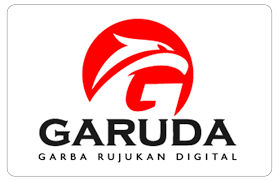About the Journal
Focus dan Scope
Environmental Science Journal (esjo) is a scientific journal in Indonesian or English that covers environmental studies including Environmental Management, Environmental Ecology, Conservation of Natural Resources and Environment, Development and Environment, Environmental Impact Analysis, Environmental Planning and Administration, Environmental Health , Environmental Physics, Environmental Biology, Environmental Chemistry, Environmental Engineering and Environmental Pollution, and Environmental Information Systems
Open Access Policy
This journal provides immediate open access to its content on the principle that making research freely available to the public supports a greater global exchange of knowledge
Publication Ethics Statement
Environmental Science Journal (esjo) is a peer-reviewed journal published by Department of Environmental Science, Faculty of Science and Technology, University PGRI Palembang, Indonesia. This statement clarifies ethical behaviour of all parties involved in the act of publishing an article in this journal, including the author, the chief editor, the Editorial Board, the peer-reviewer and the publisher. This statement is based on COPE’s Best Practice Guidelines for Journal Editors.
Ethical Guideline for Journal Publication
The publication of an article in a peer-reviewed Environmental Science Journal (esjo) is an essential building block in the development of a coherent and respected network of knowledge. It is a direct reflection of the quality of the work of the authors and the institutions that support them. Peer-reviewed articles support and embody the scientific method. It is therefore important to agree upon standards of expected ethical behavior for all parties involved in the act of publishing: the author, the journal editor, the peer reviewer, the publisher and the society.
Publication decisions
The editor of the Environmental Science Journal is responsible for deciding which of the articles submitted to the journal should be published. The validation of the work in question and its importance to researchers and readers must always drive such decisions. The editors may be guided by the policies of the journal's editorial board and constrained by such legal requirements as shall then be in force regarding libel, copyright infringement and plagiarism. The editors may confer with other editors or reviewers in making this decision.












